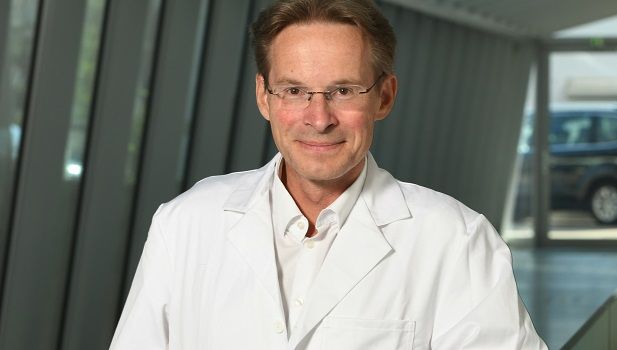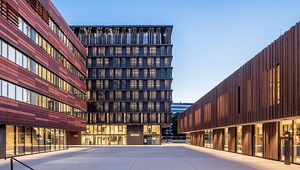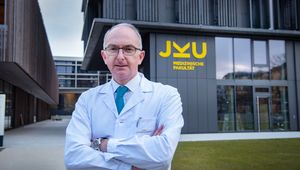University Medicine: KUK is home to Austria’s first neurosurgical hybrid OR.

Between 2% - 4% of this country’s population experience a cerebral artery aneurysm, a dilated brain vasculature. Univ. Prof. Andreas Gruber, head of the Department of Neurosurgery at KUK explains: "The condition affects women more and the risk is higher after menopause. Smoking, high blood pressure, and certain metabolic disorders play a key role as well." On average, patients diagnosed with this at the Kepler University Hospital (KUK) in Linz are approximately 55 to 60 years old. Prof. Gruber represents Austria in the European Society for Neurosurgery and thanks to his expertise, patients not only come to Linz from areas throughout Austria, but also from neighboring countries to the east as well. KUK now boasts the first hybrid neurosurgical OR in the country, aimed at offering both surgical procedures and catheter embolization.
Decisive Factors
In principle, it depends on whether or not the aneurysm has already hemorrhaged (two-thirds of those affected manage to make it to the hospital in time and one-third of these patients can be saved), or whether or not the vasculature dilation is discovered in time during an MRI. Prof. Gruber added: "Patients who complain of being dizzy often, or who are prone to headaches, undergo an MRI and we just happen to discover the aneurysm. The risks depend on age, if the patient smokes, high blood pressure, as well as where the vasculature is and how large it is." He added that if it has hemorrhaged, the aneurysm must be treated within a three-day period to prevent any further secondary hemorrhaging. There are different treatments depending on the situation, such as sealing the dilatation with a clip during the course of a four-hour operation (but the vasculature must remain open in order to supply the brain with blood).
Gruber performs the procedure at KUK approximately 50 to 60 times a year. The neurosurgeon added: "The first chair at the Department of Neurosurgery was filled at the JKU’s Faculty of Medicine in 2016. The degree of interest in science and research has been correspondingly strong and not only did Doz. Matthias Gmeiner earn a post-doctorate, over the coming years, another four post-doctorate degrees are expected to be awarded. As aneurysm therapy plays a key role in studying medicine and in research, innovative educational platforms, such as the MEDUSA project (funded by the state of Upper Austria as a lead project in medical technology), will allow both experts and young physicians to train in performing these challenging interventions that will also improve patient safety. This demonstrates just how university medicine is a direct added value that benefits those living in Upper Austria."
Prof. Gruber’s research is also an opportunity to share his extensive expertise with medical students at the JKU, as well as with younger colleagues.











